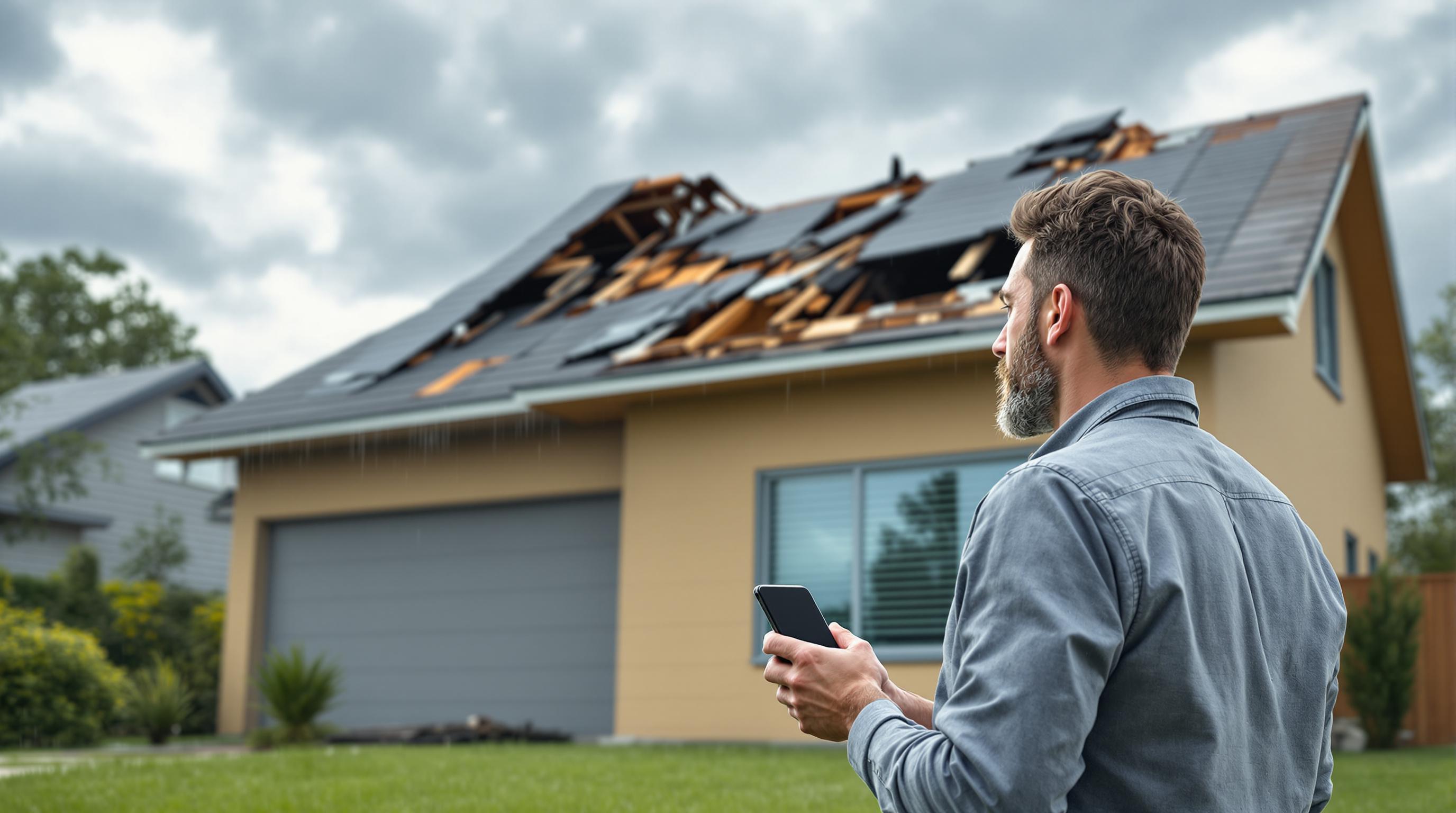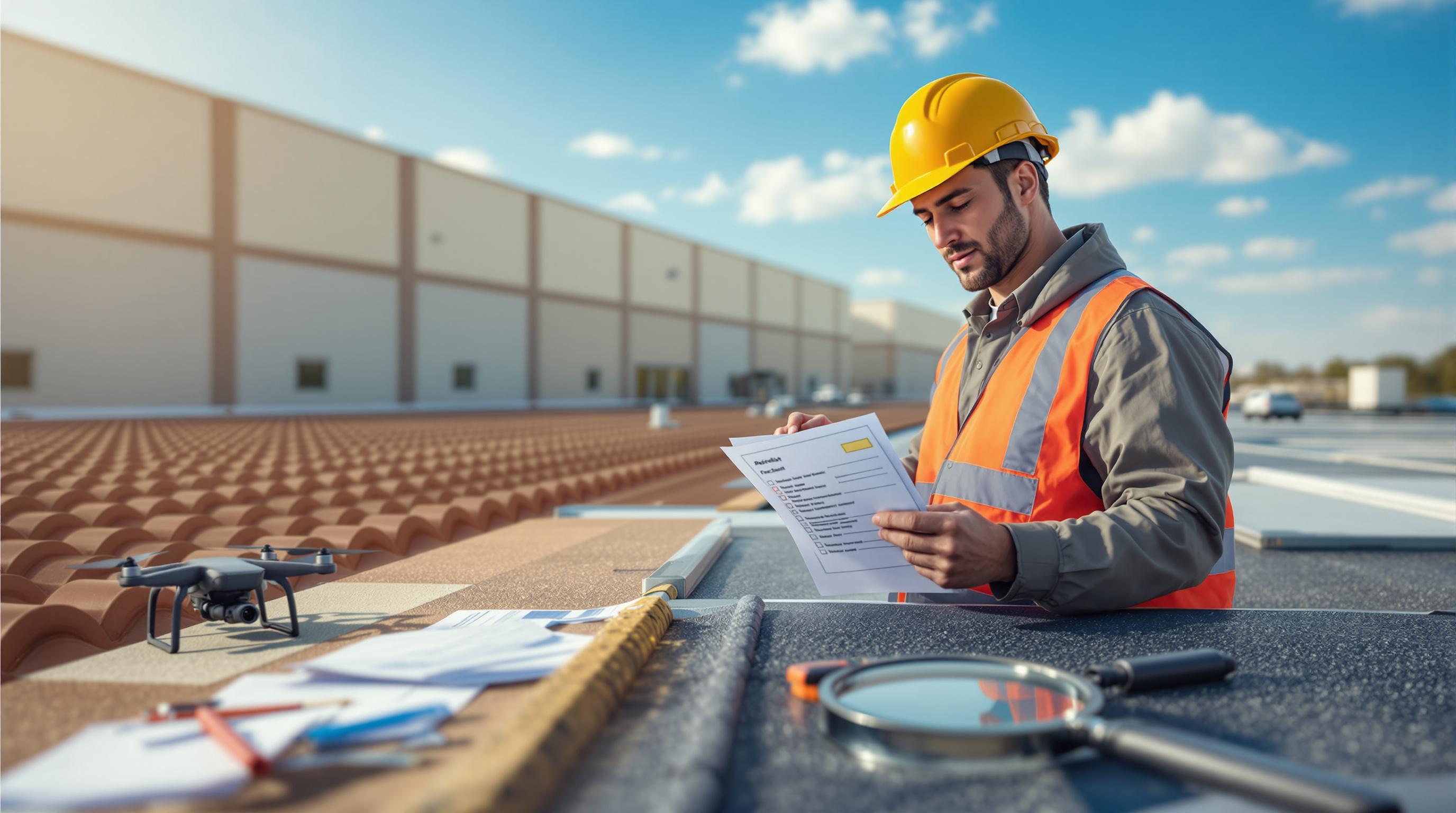Getting ready for hurricane season in Houston might seem like a big task, but with the right steps, it doesn't have to be overwhelming. From understanding the peak months of activity to securing your home, knowing what to do can make all the difference. Houston's hurricane season runs from June through November, and being prepared is key to staying safe. Let's dive into what you need to know and do to be ready for whatever comes our way.
Key Takeaways
- Hurricane season in Houston lasts from June to November, so plan ahead.
- Create an evacuation plan and know your routes before a storm hits.
- Assemble an emergency kit with essentials like food, water, and medical supplies.
- Secure your home by reinforcing windows and doors, and bring outdoor items inside.
- Stay informed with local news and weather alerts to keep up with storm updates.
Understanding the Houston Hurricane Season

Historical Overview of Hurricanes in Houston
Houston has seen its fair share of hurricanes over the years. Some of the most memorable storms include Hurricane Harvey in 2017, which caused catastrophic flooding, and Hurricane Ike in 2008, known for its destructive winds. These storms highlight the city's vulnerability to extreme weather events. Historical data shows that hurricanes have been impacting Houston since the early 20th century, with varying degrees of intensity and damage.
Key Months for Hurricane Activity
Hurricane season in Houston officially kicks off on June 1 and wraps up by November 30. However, the peak months when hurricanes are most likely to hit are August and September. During this period, warm ocean temperatures and favorable atmospheric conditions increase the likelihood of hurricane formation. Residents are advised to stay vigilant and prepared throughout these months.
Climate Factors Influencing Hurricanes
Several climate factors contribute to the development and intensity of hurricanes affecting Houston. Warm sea surface temperatures in the Gulf of Mexico provide the energy needed for hurricanes to form and strengthen. Additionally, atmospheric conditions such as low wind shear and high humidity levels are conducive to hurricane development. It's essential for residents to understand these factors and their potential impact on hurricane activity.
Creating a Comprehensive Hurricane Preparedness Plan
Preparing for hurricane season in Houston is not just about stocking up on supplies; it's about having a solid plan that can keep you and your family safe. Here's how you can create a robust hurricane preparedness plan.
Identifying Potential Risks and Hazards
Start by understanding the specific risks that hurricanes pose to your area. Houston's proximity to the Gulf means that flooding and wind damage are significant concerns. Map out your home's vulnerabilities, such as low-lying areas prone to flooding or large trees that could fall. Knowing these risks helps you prioritize your preparations.
- Check your flood zone status.
- Identify weak spots in your home, like old windows or loose roof tiles.
- Be aware of evacuation routes and local shelters.
Developing an Evacuation Strategy
An evacuation plan is crucial, especially if you live in a flood-prone area. Know your evacuation zone and have a clear route planned out. Don't forget to have a backup route in case the primary one is blocked.
- Determine your evacuation zone using local resources.
- Plan your primary and secondary evacuation routes.
- Establish a meeting point for family members if you get separated.
Establishing a Communication Plan
Communication can be challenging during a hurricane, so setting up a plan in advance is essential. Ensure everyone in your family knows how to stay in touch and where to go if separated.
- Designate a contact person outside the hurricane zone who can relay information.
- Use text messages or social media to communicate, as these may work better than calls.
- Keep a list of emergency contacts handy.
Having a well-thought-out plan can make all the difference when a hurricane hits. It's not just about surviving the storm but also ensuring you are ready to face the challenges that come with it.
By following these steps, you can better protect yourself and your loved ones. Remember, preparation is key to weathering the storm safely.
Assembling an Emergency Supply Kit
Essential Items for Your Hurricane Kit
Preparing for hurricane season means having a well-stocked emergency supply kit. This kit can be a lifesaver when a storm hits and you have to stay indoors for days. Here's a checklist to help you gather the essentials:
- Water: Aim for at least one gallon per person per day for at least seven days.
- Non-perishable Food: Stock up on canned goods, protein bars, and dried fruits. Don't forget a manual can opener!
- Flashlights and Batteries: Power outages are common during hurricanes, so keep several flashlights handy along with extra batteries.
- First Aid Kit: Include bandages, antiseptics, and any necessary prescription medications.
- Important Documents: Store copies of IDs, insurance papers, and medical records in a waterproof container.
- Cash: ATMs may not be operational, so having cash on hand is crucial.
- Pet Supplies: If you have pets, ensure you have food, water, and any medications they might need.
Food and Water Storage Recommendations
When it comes to food and water, planning is key. Store water in clean, airtight containers and keep them in a cool, dark place. Rotate your water supply every six months to ensure freshness. For food, focus on items that require no refrigeration or cooking. Canned soups, peanut butter, and crackers are excellent choices. Remember to include a variety of items to prevent meal fatigue.
Medical Supplies and Prescriptions
Your health is a top priority during a hurricane. Make sure your first aid kit is well-stocked with basics like band-aids, antiseptic wipes, and pain relievers. If you take prescription medications, have a supply that lasts at least two weeks. Consider any special needs for family members, such as infant formula or hearing aid batteries.
Being prepared with the right supplies can make a significant difference in how you weather the storm. Take the time now to gather these items and store them in an easily accessible location. Preparation is not just about survival; it's about peace of mind.
Securing Your Home Against Hurricanes
Reinforcing Windows and Doors
When a hurricane is on the horizon, the first thing to do is reinforce your windows and doors. These are the most vulnerable points in your home. Consider installing storm shutters or impact-resistant windows to withstand high winds and flying debris. If that's not an option, boarding up windows with plywood can provide a temporary solution. For doors, ensure they have at least three hinges and a deadbolt lock to keep them secure.
Protecting Outdoor Areas and Belongings
Your outdoor spaces can become hazardous during a hurricane if not properly secured. Bring in any loose items like patio furniture, garden tools, and decorations. These can turn into dangerous projectiles in strong winds. It's also wise to trim trees and bushes around your home to prevent branches from breaking off and causing damage. If you have a pool, cover it to avoid debris contamination.
Understanding Insurance Coverage for Hurricanes
Before hurricane season hits, it's crucial to review your insurance policies. Make sure you understand what is covered in the event of hurricane damage. Many standard homeowner policies do not cover flood damage, so you might need a separate flood insurance policy. Documenting your belongings through photos or videos can also help speed up the claims process if needed.
Preparing your home for a hurricane might seem overwhelming, but taking these steps can significantly reduce the risk of damage. Remember, the time to get ready is before the storm hits.
For a more detailed guide on how to hurricane-proof your home, consider securing your roof, installing storm shutters, strengthening entry doors, protecting outdoor spaces, and sealing openings and gaps.
Staying Informed During Hurricane Season

Utilizing Local News and Weather Alerts
Staying informed is essential for hurricane preparedness in Texas. Regularly checking local news and weather updates enables residents to stay ahead of the storm. Keeping up with local news can make all the difference when a hurricane is approaching. Local stations often have the most up-to-date information on storm paths and intensity. Sign up for alerts from trusted sources like the National Weather Service or ReadyHarris.org to get notifications directly to your phone.
- Local TV and Radio Stations: Tune in to your local stations for real-time updates.
- Weather Apps: Download apps that provide storm tracking and alerts.
- Emergency Alert Systems: Register for local emergency alert systems to receive timely messages.
It's not just about knowing when a storm is coming; it's about understanding what actions to take and when to take them.
Understanding Hurricane Warning Systems
Understanding the different types of hurricane warnings can help you prepare appropriately. There are several levels of alerts, each indicating the severity and expected impact of the storm.
- Hurricane Watch: Conditions are possible within the next 48 hours. Start preparing your home and review your evacuation plan.
- Hurricane Warning: Conditions are expected within 36 hours. Complete storm preparations and evacuate if directed by officials.
- Tropical Storm Warning: Issued when tropical storm conditions are expected within 36 hours.
Familiarize yourself with these terms so you can react quickly and effectively when alerts are issued.
Using Technology for Real-Time Updates
In today's digital age, technology plays a crucial role in keeping us informed during hurricane season. Smartphones, tablets, and computers can be valuable tools for accessing real-time information and staying connected.
- Social Media: Follow local government and weather service accounts for updates.
- Mobile Apps: Use apps like the FEMA app or local emergency management apps for alerts and safety tips.
- SMS Alerts: Set up your phone to receive text alerts from local authorities.
By leveraging technology, you can ensure that you and your family are always in the loop, no matter where you are. Staying informed means being prepared, and that preparation can save lives.
Community Resources and Support Systems
Local Shelters and Evacuation Centers
When a hurricane is looming, knowing where to find safety is crucial. Houston has numerous emergency services and shelters available to residents. It's essential to familiarize yourself with the nearest shelters and evacuation centers. Always have a list ready of these locations, which can be found through local authorities or by calling 311. Make sure your entire family knows these locations and has a plan to get there quickly if needed.
Community Emergency Response Teams
Community Emergency Response Teams (CERT) are invaluable during disasters. These teams consist of trained volunteers who assist in emergency situations. They help with everything from basic first aid to search and rescue operations. Joining a CERT can not only prepare you for hurricanes but also allow you to help others in your community. Training is often provided by local government agencies, and it's a great way to contribute to your neighborhood's safety.
Volunteering and Assisting Neighbors
In times of crisis, community spirit shines brightest. Volunteering to help your neighbors, especially the elderly or those with disabilities, can make a significant difference. Whether it's helping to secure homes, providing transportation, or sharing resources, every small act of kindness counts. Consider forming a neighborhood group to ensure everyone is accounted for and supported during a hurricane. Remember, in the aftermath of a storm, a strong community network can expedite recovery and bring comfort to those affected.
Being prepared is not just about having supplies; it's about knowing how to use community resources effectively. When everyone works together, the impact of a hurricane can be mitigated, and recovery can be quicker and more efficient.
Post-Hurricane Recovery and Safety Measures
Assessing Damage and Filing Insurance Claims
Once the storm has passed, it's time to take stock of what’s happened. Start by carefully inspecting your property for any visible damage. Look for broken windows, roof leaks, or any structural concerns. Make sure to document everything with photos and notes. This will be crucial when you’re filing insurance claims. Contact your insurance agent as soon as possible to begin the claims process. Keep a list of damaged items and any temporary repairs you’ve made, along with receipts.
Ensuring Safe Return to Your Home
Before you head back home, check with local authorities to ensure it’s safe. Sometimes, even if the weather has cleared, there could be hidden dangers like downed power lines or flooding. When you do return, go slowly and cautiously.
- Avoid any standing water.
- Be on the lookout for wildlife that might have been displaced.
- Inspect utilities and turn them on one by one.
Accessing Community Recovery Resources
After a hurricane, community resources can be a lifeline. Local shelters, food banks, and emergency services often step in to help those affected. Reach out to community emergency response teams for assistance. They can provide not just physical help, but also guidance on what steps to take next.
In times like these, leaning on your community can make a world of difference. Don't hesitate to ask for help or offer it if you can.
For a detailed checklist of activities that utilities can undertake to effectively prepare for and recover from severe storms, refer to this checklist.
After a hurricane, it's crucial to focus on recovery and safety. Make sure to check your home for any damage and secure your property. If you need help, visit our website to find the best roofing companies in Houston that can assist you in getting your home back in shape. Don't wait—take action now!
Wrapping Up: Stay Ready, Stay Safe
Alright, folks, that's the lowdown on getting ready for hurricane season in Houston. It's all about being prepared before the storm hits. Make sure you've got your supplies, know your evacuation routes, and have a plan for your family and pets. Don't wait until the last minute to get things in order. Remember, it's better to be safe than sorry. Keep an eye on trusted sources for updates, and stay connected with your community. We can get through this together. Stay safe out there!
Frequently Asked Questions
What should I include in my hurricane emergency kit?
Your kit should have water, non-perishable food, flashlights, batteries, a first aid kit, medications, important documents, and cash. Don’t forget items for pets like food and leashes.
How can I prepare my home for a hurricane?
Secure windows with plywood, bring outdoor furniture inside, and trim trees. Make sure gutters are clean to prevent flooding.
What should I do if I need to evacuate?
Follow local evacuation orders, take your emergency kit, and know your evacuation route. Plan where you will stay and keep your phone charged for updates.
How do I stay informed during a hurricane?
Sign up for local alerts, listen to the radio, and check trusted websites for updates. Use apps for real-time information.
What are the key months for hurricanes in Houston?
Hurricane season in Houston runs from June 1 to November 30, with peak activity typically from August to October.
How can I help my community during a hurricane?
Check on neighbors, especially the elderly or those with special needs. Volunteer at local shelters or donate supplies if you can.



